 W
WThe Encyclopædia Britannica is a general knowledge English-language online encyclopaedia. It was formerly published by Encyclopædia Britannica, Inc., and other publishers. It was written by about 100 full-time editors and more than 4,000 contributors. The 2010 version of the 15th edition, which spans 32 volumes and 32,640 pages, was the last printed edition.
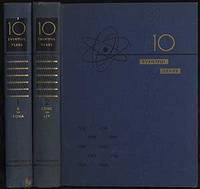 W
W10 Eventful Years is the title of the 1947 Encyclopædia Britannica compilation, spanning ten years, 1937 through 1946. The books were commissioned and edited by Walter Yust, the editor of the Encyclopædia Britannica and were partly based on the Encyclopedia's annual Year Book.
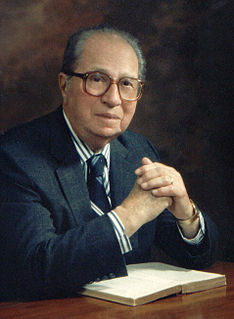 W
WMortimer Jerome Adler was an American philosopher, educator, and popular author. As a philosopher he worked within the Aristotelian and Thomistic traditions. He lived for long stretches in New York City, Chicago, San Francisco, and San Mateo, California. He taught at Columbia University and the University of Chicago, served as chairmain of the Encyclopædia Britannica Board of Editors, and founded his own Institute for Philosophical Research.
 W
WHarry Scott Ashmore was an American journalist who won a Pulitzer Prize for his editorials in 1957 on the school integration conflict in Little Rock, Arkansas.
 W
WThomas Spencer Baynes was an English philosopher.
 W
WAndrew Bell (1726–1809) was a Scottish engraver and printer, who co-founded Encyclopædia Britannica with Colin Macfarquhar.
 W
WCharles Frederic Moberly Bell was a prominent British journalist and newspaper editor during the late 19th and early 20th centuries.
 W
WThe Benton Foundation is a nonprofit organization set up by former U.S. Senator William Benton and his wife, Helen Hemingway Benton. Their son, Charles Benton, served as chairman and CEO until his death in 2015.
 W
WWilliam Burnett Benton was an American senator from Connecticut (1949–1953) and publisher of the Encyclopædia Britannica (1943–1973).
 W
WThomson Bonar was a wine-merchant who married Elizabeth, the daughter of the engraver Andrew Bell, who co-founded the Encyclopædia Britannica with Colin Macfarquhar.
 W
WHugh Chisholm was a British journalist, and editor of the 10th, 11th and 12th editions of the Encyclopædia Britannica.
 W
WArchibald David Constable was a Scottish publisher, bookseller and stationer.
 W
WThomas Bradford Curtis was a Republican politician from Missouri who represented suburban St. Louis County, Missouri for nine terms from 1951 to 1969. He was a primary driver behind the Civil Rights Act of 1964 and aggressive supporter of civil rights for black Americans throughout his career.
 W
WThomas Dobson was a master printer most famous for having published the earliest American version of the Encyclopædia Britannica, and the first in the United States to publish a complete Hebrew Bible.
 W
WEncyclopædia Britannica Films was the top producer and distributor of educational 16 mm films and later VHS videocassettes for schools and libraries from the 1940s through the 1990s. Prior to 1943, the company operated under the name of Electrical Research Products Inc. (ERPI) Classroom Films.
Encyclopædia Britannica, Inc. is a Scottish-founded American company known for publishing the Encyclopædia Britannica, the world's oldest continuously published encyclopaedia, as well as extensive digital efforts—including text and audiovisual—that are aimed at educational tools for primary and secondary schools, and for everyday learners accessing information through online search.
 W
WJames Louis Garvin was a British journalist, editor, and author. In 1908, Garvin agreed to take over the editorship of the Sunday newspaper The Observer, revolutionising Sunday journalism and restoring the paper, which was facing financial troubles at the time, to profitability in the process.
 W
WGateway to the Great Books is a 10-volume series of books originally published by Encyclopædia Britannica Inc. in 1963 and edited by Mortimer Adler and Robert Maynard Hutchins. The set was designed as an introduction to the Great Books of the Western World, published by the same organization and editors in 1952. The set included selections – short stories, plays, essays, letters, and extracts from longer works – by more than one hundred authors. The selections were generally shorter and in some ways simpler than the full-length books included in the Great Books.
 W
WGreat Books of the Western World is a series of books originally published in the United States in 1952, by Encyclopædia Britannica, Inc., to present the Great Books in a 54-volume set.
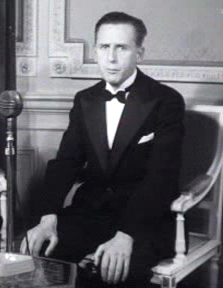 W
WSir William John Haley, KCMG was a British newspaper editor and broadcasting administrator.
 W
WThe Historians' History of the World, subtitled A Comprehensive Narrative of the Rise and Development of Nations as Recorded by over two thousand of the Great Writers of all Ages, is a 25-volume encyclopedia of world history originally published in English near the beginning of the 20th century. It was compiled by Henry Smith Williams, a medical doctor and author of many books on medicine, science, and history, as well as other authorities on history, and published in New York in 1902 by Encyclopædia Britannica and the Outlook Company. It was also published in London printed by Morrison & Gibb Limited, of Edinburgh. A second edition was published in 1907 in London by The Times. Two further volumes were subsequently released in the 5th edition of 1926, titled "These eventful years" and dealing with the First World War, published by Encyclopaedia Britannica.
 W
WThe Encyclopædia Britannica has been published continuously since 1768, appearing in fifteen official editions. Several editions have been amended with multi-volume "supplements", consisted of previous editions with added supplements or gone drastic re-organizations (15th). In recent years, digital versions of the Britannica have been developed, both online and on optical media. Since the early 1930s, the Britannica has developed several "spin-off" products to leverage its reputation as a reliable reference work and educational tool.
 W
WHorace Everett Hooper was the publisher of Encyclopædia Britannica from 1897 until his death.
 W
WMargaret Lindsay, Lady Huggins , born Margaret Lindsay Murray, was an Irish-English scientific investigator and astronomer. With her husband William Huggins she was a pioneer in the field of spectroscopy and co-wrote the Atlas of Representative Stellar Spectra (1899).
 W
WThe Know-It-All: One Man's Humble Quest to Become the Smartest Person in the World is a book by Esquire editor A. J. Jacobs, published in 2004.
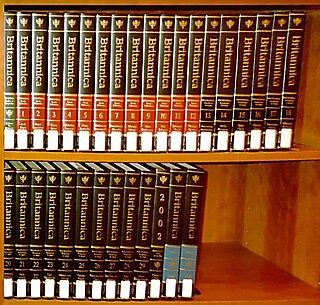 W
WThe 17-volume Macropædia is the third part of the Encyclopædia Britannica; the other two parts are the 12-volume Micropædia and the 1-volume Propædia. The name Macropædia is a neologism coined by Mortimer J. Adler from the ancient Greek words for "large" and "instruction". Adler's intention was that the Macropædia serve students who wish to learn a field in depth; for comparison, the short articles of the Micropædia are intended for quick fact-checking.
 W
WThe 12-volume Micropædia is one of the three parts of the 15th edition of Encyclopædia Britannica, the other two being the one-volume Propædia and the 17-volume Macropædia. The name Micropædia is a neologism coined by Mortimer J. Adler from the ancient Greek words for "small" and "instruction"; the best English translation is perhaps "brief lessons".
 W
WMacvey Napier was a Scottish solicitor, legal scholar, and an editor of the Encyclopædia Britannica. He was Professor of Conveyancing at the University of Edinburgh.
 W
WFatḥ-ʻAli Šâh Qâjâr was the second Shah (king) of Qajar Iran. He reigned from 17 June 1797 until his death. His reign saw the irrevocable ceding of Iran's northern territories in the Caucasus, comprising what is nowadays Georgia, Dagestan, Azerbaijan, and Armenia, to the Russian Empire following the Russo-Persian Wars of 1804–1813 and 1826–1828 and the resulting treaties of Gulistan and Turkmenchay. Historian Joseph M. Upton says that he "is famous among Iranians for three things: his exceptionally long beard, his wasp-like waist, and his progeny."
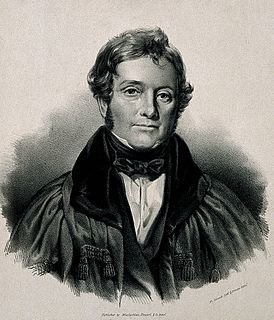 W
WThomas Stewart Traill was a British physician, chemist, meteorologist, zoologist and scholar of medical jurisprudence. He was the grandfather of the physicist, meteorologist and geologist Robert Traill Omond FRSE (1858-1914).
 W
WCharles Lincoln Van Doren was an American writer and editor who was involved in a television quiz show scandal in the 1950s. In 1959 he testified before the United States Congress that he had been given the correct answers by the producers of the NBC quiz show Twenty-One. Terminated by NBC, he joined Encyclopædia Britannica, Inc. in 1959, becoming a vice-president and writing and editing many books before retiring in 1982.
 W
WSir Donald Mackenzie Wallace was a Scottish public servant, writer, editor and foreign correspondent of The Times (London).
 W
WWalter M. Yust was an American journalist and writer. Yust was also the American editor-in-chief of the Encyclopædia Britannica from 1938 to 1960. He was the father of filmmaker Larry Yust and Jane Yust Rivera. A graduate of the University of Pennsylvania, Yust began his career as a writer for the Philadelphia Evening Ledger in 1917 and later worked for newspapers in New Orleans, Louisiana, and for other publications. Yust became the literary editor of the Philadelphia Public Ledger in 1926. Three years later, upon writing a review of the new 14th edition of the Encyclopædia Britannica, Yust came to the attention of its president, William Cox. The following year Yust began to work for the encyclopaedia and became its associate editor in 1932. He served as editor in chief from 1938 until his retirement in 1960.
 W
W